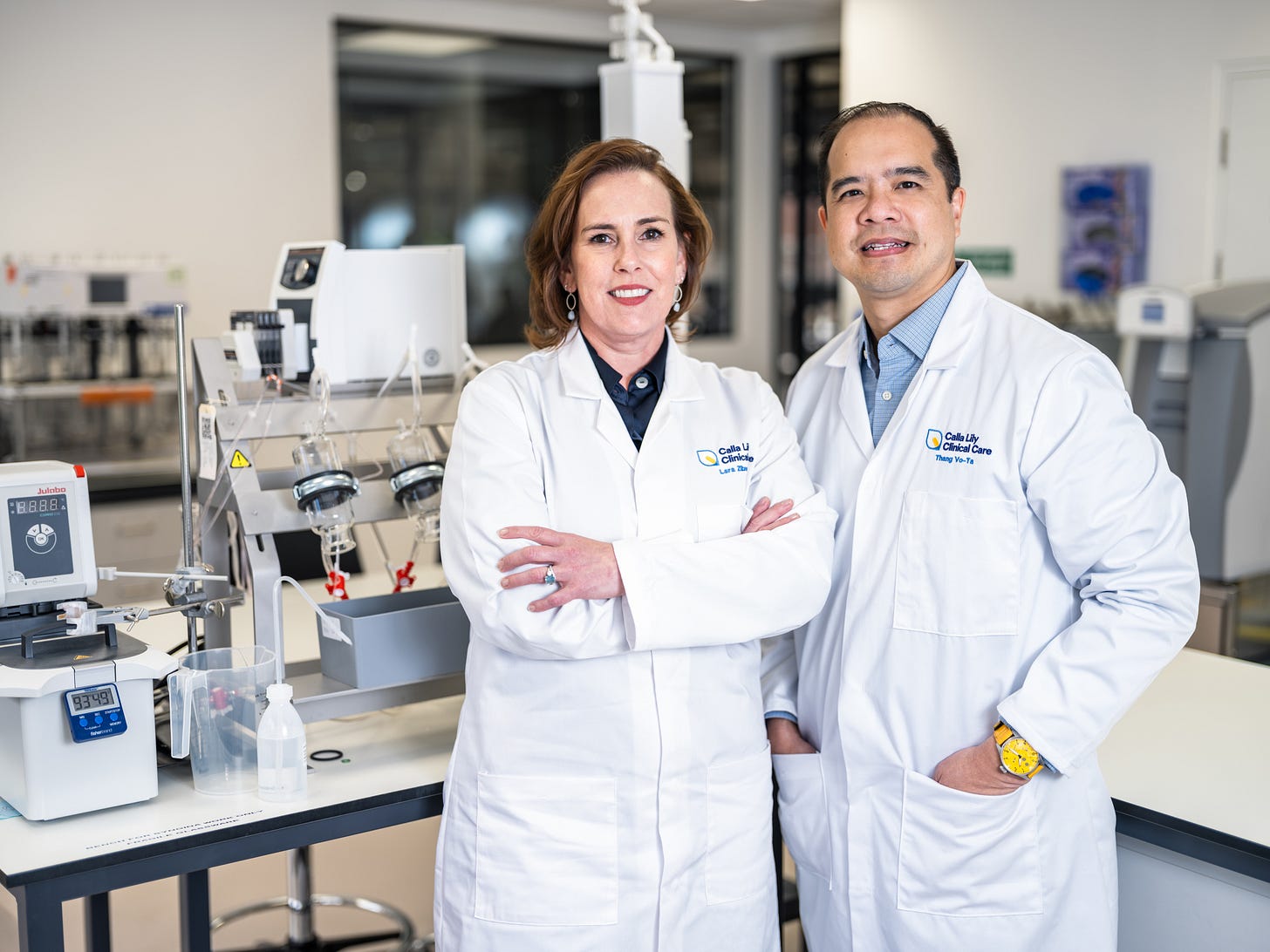Calla Lily's pioneering device for threatened miscarriage moves towards clinical trials with £1m NIHR funding boost
If approved, would be world's first drug-device combination product to treat threatened miscarriage

A new medical device designed to improve the delivery of doses of progesterone and prevent threatened miscarriage is moving towards clinical trials, following a £1 million funding boost from the National Institute for Health and Care Research (NIHR). If successful, the ‘Callavid’ device could transform care for an estimated 150,000 women each year in the UK and become the world’s first drug-device combination treatment for threatened miscarriage.
The technology, developed by Calla Lily Clinical Care, aims to address a longstanding issue with progesterone treatment, which is recommended by NICE for women experiencing early pregnancy bleeding who have previously suffered miscarriage. Current methods rely on vaginal pessaries, which are prone to significant leakage, causing anxiety and inconvenience for patients at an already distressing time. The device also has other use cases - for example during IVF when progesterone pessaries are routinely prescribed.
The Callavid® device, shaped like a small tampon with an integrated mini-liner, is designed to remain in place while the medication is absorbed, before being cleanly removed. Its developers hope it will provide a more reliable and less anxiety-inducing alternative to current pessaries, which often require women to remain lying down to mitigate leakage.
Dr Lara Zibners, co-founder and chair of Calla Lily Clinical Care, said:
“Having been through seven rounds of IVF, I have first-hand experience of how awful taking progesterone can be. Any woman who is trying to have a baby knows she will do anything to make sure she is getting the right medications and maximising her chance of success. Vaginal progesterone leaks. Badly. Excessive leakage causes so much additional and unnecessary distress.
“Our device has significant potential to improve women’s quality of life; improving their experience of administering progesterone and playing a role in tackling threatened miscarriage.”
Benefits during IVF and more
The team behind the innovation believes that the same technology will also prove beneficial for women undergoing IVF treatment, which requires progesterone administration (more than 1.3m cycles in the UK since 1991). It could also be beneficial for delivering other vaginally-delivered medications, including live biotherapeutic products (LBPs) to treat recurrent Bacterial Vaginosis, cutting antibiotic usage and helping to reduce the spread of antimicrobial resistance (AMR).
Prior to securing the NIHR funding, Calla Lily Clinical Care previously secured over £1m in grant funding from Innovate UK to further their research and development.
Lara continued:
“We’re incredibly proud to have reached this critical milestone in our development of a brand new medical device designed to enhance how women administer vaginal progesterone. The NIHR funding will enable us to test our technology via a feasibility study this autumn, bringing us one step closer to making this product available to help women at one of the most distressing moments of their lives.”
Phased clinical trial process
The NIHR funding will support a phased clinical trial process, beginning with a usability study this month to ensure patients can effectively use the device. This will be followed by an NIHR-funded feasibility study later in 2025. This study will be led by Professor Siobhan Quenby MBE - one of the world’s leading authorities on miscarriage and preterm birth - and the team at University Hospitals Coventry and Warwickshire NHS Trust’s Clinical Trials Unit.
A pivotal bioequivalence trial is planned for 2026, after which Callavid® will seek regulatory approval from the UK Medicines and Healthcare products Regulatory Agency (MHRA).
Professor Michael Lewis, Scientific Director for Innovation at NIHR, said:
“The NIHR’s mission is to enable world-leading research that improves people’s health and wellbeing. The innovation being pioneered by the team at Calla Lily Clinical Care aligns exactly with this vision. We are delighted to have awarded them this funding and are looking forward to seeing the results of this year’s clinical trial and the long-term positive impact it will have for women.”
A £236 million economic burden
The financial burden of inefficient progesterone delivery is also significant. Research from the London School of Economics' Care Policy and Evaluation Centre (CPEC) suggests the avoidable cost to the NHS and wider economy from leaky progesterone pessaries for miscarriage prevention and IVF stands at £236 million per year.
Professor Quenby, a leading authority on miscarriage and preterm birth, welcomed the development:
“This new product will be extremely welcomed by miscarriage patients. Pessary leakage is a recurring issue amongst my patients, causing acute anxiety and significant inconvenience during a very difficult time. New methods to reduce additional psychological anxiety are badly needed in this field. Through this innovation, one which is being pioneered right here in the UK, I believe there is potential to transform women’s experience.”



